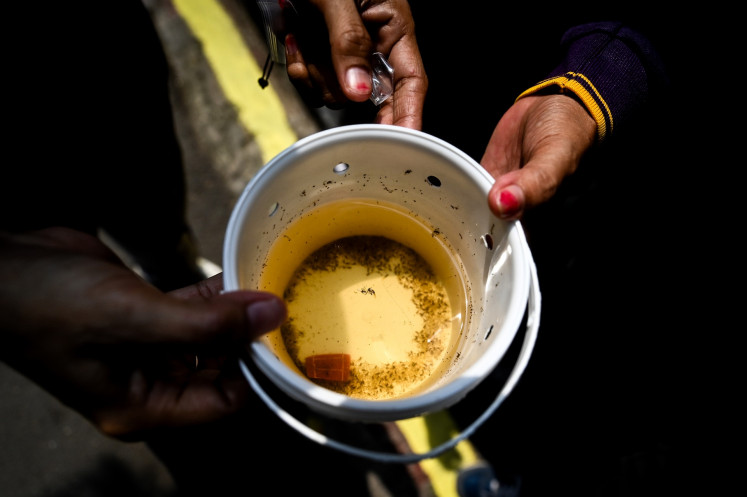Our Terms & Conditions | Our Privacy Policy
Scientists reassert Wolbachia’s minimum risk for dengue control – Jakarta
s health authorities release Wolbachia-infected mosquito eggs in West Jakarta as an effort to curb dengue, experts have reasserted the safety of the relatively new technology, noting that available studies show it poses little to no risk to either humans or the environment.
On Friday, the Jakarta administration launched the program to release thousands of mosquito larva infected with the Wolbachia bacteria in Kembangan district, West Jakarta. Nearly 1,200 households were selected to be given buckets filled with the eggs and larva and make sure they hatch into adult mosquitoes.
Wolbachia is a bacterium found in 60 percent of insect species, but not in Aedes aegypti, the mosquito species known as the vector of dengue fever. When these mosquitoes are infected with Wolbachia, the bacterium weakens the dengue virus, thereby reducing the mosquitoes’ ability to transmit the disease to humans.
When a male mosquito infected with Wolbachia mates with noninfected females, the eggs produced do not hatch. If either the female, or both the male and female, carry Wolbachia, their larva will also carry the microorganism, resulting in adult mosquitoes that are inhibited from spreading the dengue virus.
Kembangan was selected for the project due to its high record of dengue cases, with 54.1 cases per 100,000 people in 2023, according to the Jakarta Health Agency. West Jakarta also recorded the highest number of dengue patients with 799 cases in April, before decreasing to a double digit figure by September.
“The Kembangan district has a high population density. Residents across the district are known to work together, so principally, they are open to the plan to release the Wolbachia-infected Aedes aegypti mosquitoes,” said West Jakarta Mayor Uus Kuswanto in a statement issued on Friday.
Every Monday, Wednesday and Friday morning.
Delivered straight to your inbox three times weekly, this curated briefing provides a concise overview of the day’s most important issues, covering a wide range of topics from politics to culture and society.
for signing up our newsletter!
Please check your email for your newsletter subscription.
View More Newsletter

A health worker shows a bucket filled with Aedes aegypti mosquito larva containing the Wolbachia bacteria in Kembangan district, West Jakarta, on Oct. 4. The Jakarta administration is releasing the Wolbachia-infected mosquito eggs in an effort to control the spread of dengue in the city. (Antara/Rivan Awal Lingga)
Images are for reference only.Images and contents gathered automatic from google or 3rd party sources.All rights on the images and contents are with their legal original owners.



Comments are closed.